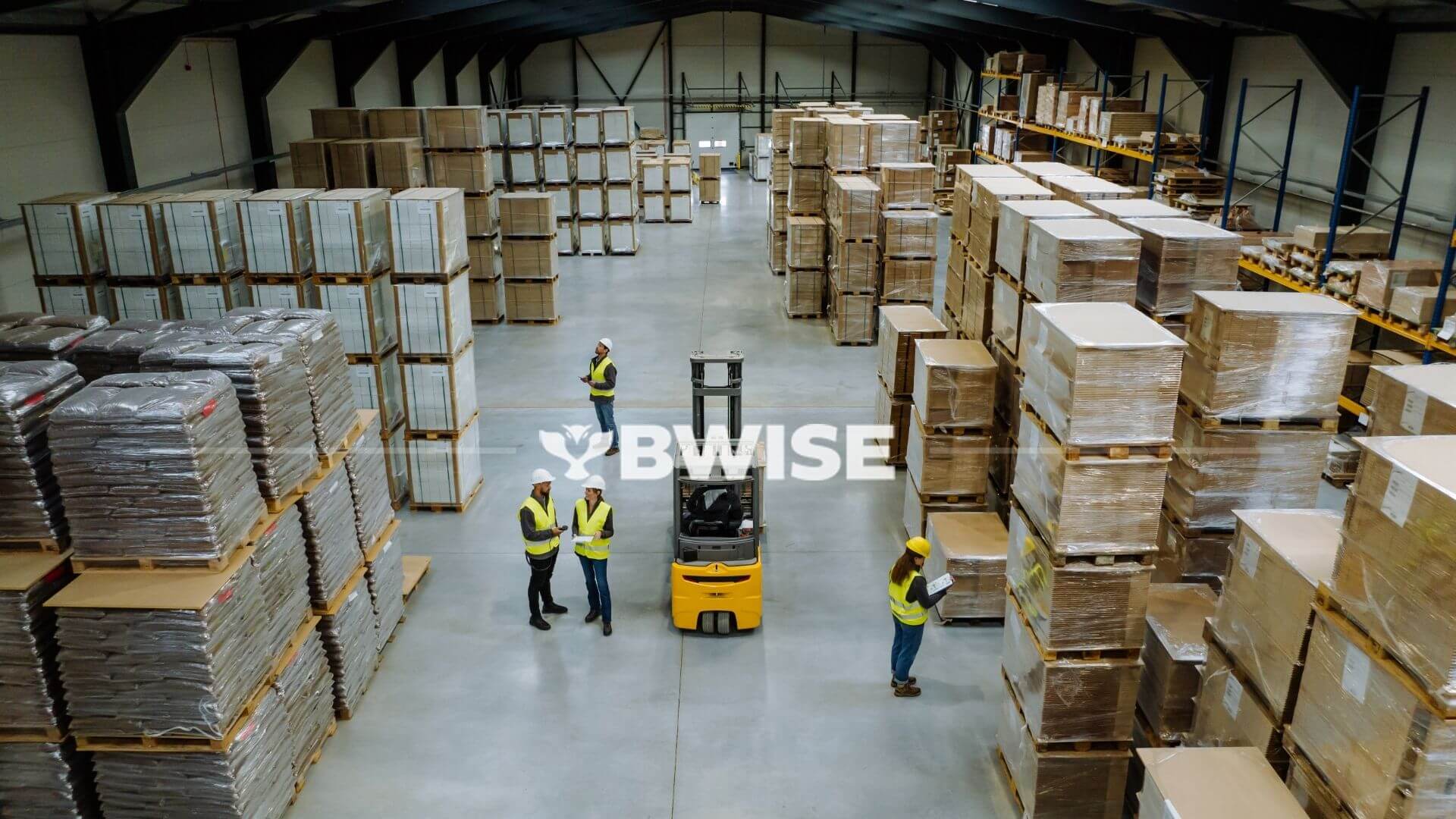
In today’s highly competitive business environment, effective inventory control and streamlined operations are essential for success. One way to achieve these goals is by implementing a suitable warehouse management system (WMS). With so many WMS options available, it can be overwhelming to determine the best fit for your organization.
In this article, we will explore the various warehouse management system types available and their benefits, so you can make an informed decision about which one will best meet your business requirements.
Key Takeaways
- Warehouse management systems are critical for enhancing inventory control and streamlining operations.
- There are several types of WMS available in the market, each with unique benefits and considerations.
- Selecting the most suitable WMS requires evaluation of business requirements, budget, scalability needs, and integration possibilities.
Key Topics
On-Premises WMS
If you prefer complete control and customizability, the on-premises WMS could fit your business needs. This locally hosted solution allows you to install and operate the software on your servers or hardware, giving you full ownership ofoperate it on your servers or hardware, giving you full ownership over your data and infrastructure. However, er, this comes at a cost. On-premises WMS requires significant upfront investments in infrastructure and ongoing IT maintenance.
| On-Premises WMS | Cloud-Based WMS | |
| Hosting | Locally Hosted Solution | Hosted and Accessed through the Internet |
| Control | Complete control over data and infrastructure | Limited control over hosting and data |
| Customizability | Highly customizable based on business needs | Limited customization options |
| Costs | Significant upfront investments and ongoing IT maintenance costs | Cost-effective, pay for services as you need them |
Despite the cost, on-premises WMS has some benefits. This type of WMS is suitable for businesses with high-security standards, where data privacy is a major concern. It also allows businesses to maintain their network and hardware infrastructure, avoiding any dependency on third-party providers.
Is On-Premises WMS Right for Your Business?
Consider your business needs when deciding on the type of warehouse management system. On-premises WMS is ideal for companies that:
- Have existing hardware and infrastructure in place
- Need complete control over their data and infrastructure
- Require highly customizable software
- Have high-security standards
- Can afford significant upfront investments in infrastructure and ongoing IT maintenance expenses
Cloud-Based WMS
Cloud-based WMS, also referred to as software-as-a-service (SaaS) WMS, is an ideal solution for businesses seeking enhanced efficiency without the expense of managing hardware and software updates. Hosting and access through the internet save valuable time and resources.
With a cloud-based WMS, your company has flexible storage, processing capacity, and more economical pricing. Additionally, the scalability is excellent, allowing companies to pay for the services they require, avoiding unnecessary expenses and upfront investments in IT infrastructure.
Furthermore, cloud-based WMS providers offer easy-to-use, intuitive interfaces, as well as24/7 support. As a result, maintenance is hassle-free, enabling your IT professionals to focus on other strategic projects.
| Advantages | Disadvantages |
| Flexible payment options | Requires reliable internet connection |
| Scalability options | Some security concerns or reluctance to host data off-site |
| No maintenance, updates, or hardware required to maintain | Customization can be limited based on the provider’s guidelines |
| 24/7 customer support | Provider EULA agreement terms should be reviewed for concerns and limitations |

Hybrid WMS
Hybrid WMS offers a combination of on-premises and cloud-based solutions. This type of WMS provides businesses with the advantage of utilizing their existing infrastructure while benefiting from the cloud-based features. Hybrid WMS provides real-time data access and remote support for the users, enhancing efficiency and productivity. The flexibility of Hybrid WMS makes it an ideal solution for growing businesses with fluctuating needs.
Industry-Specific WMS
Industry-specific WMS systems offer specialized functionalities catered to the unique processes and requirements of specific industries. These systems help address industry-specific challenges and bring about improved efficiency and accuracy in warehouse management.
Examples of Industry-Specific WMS
| Industry | Specialized Functionalities | WMS Brands |
| Retail | Point of Sale (POS) Integration, Automated Replenishment, Real-Time Inventory Management | Oracle NetSuite WMS, JDA Software Warehouse Management, Infor WMS |
| Manufacturing | Inbound & Outbound Inventory Management, Barcoding, Serial Number Tracking, Multiple Warehouses Management | Microsoft Dynamics 365 Supply Chain Management, Sage 100cloud WMS, Epicor WMS |
| Healthcare | Regulatory Compliance, Temperature and Humidity Monitoring, Expiration Date Management, Controlled Substance Segregation | Omnicell Supply Management and Analytics, McKesson AcuDose-Rx, TECSYS Elite Healthcare |
| e-Commerce | Order Picking Optimization, Returns Management, Real-Time Inventory Visibility, Multichannel Inventory Management | ShipHero, Cin7, Skubana |
Some other industries that may benefit from industry-specific WMS include food and beverage, 3PL, pharma and biotech, and automotive. While these systems may require certain customization and configuration to fit the specific processes of the business, they can bring about significant improvements in productivity and customer satisfaction.
Standalone WMS
Standalone WMS is a solution ideal for small businesses or those in their early growth stages that only require core warehouse management functionalities. This standalone solution may lack advanced features but offers simplicity and cost efficiency.
It typically includes features such as:
| Core Warehouse Functionality | Additional Features |
| Inventory Management | Basic Reporting |
| Receiving | Lot Tracking |
| Picking and Packing | Barcode Scanning |
| Shipping | – |
This solution may be suitable for businesses with basic inventory management requirements that are not looking for a complex WMS. It is also a good starting point for businesses that want to upgrade their warehouse management process in future. Standalone WMS provides an excellent foundation for any business seeking to streamline warehouse management operations while remaining within budget.
Integrated WMS
Integrated WMS refers to a type of warehouse management system that seamlessly integrates with other enterprise systems, such as Enterprise Resource Planning (ERP) software. With the integration of the WMS and ERP, businesses can achieve real-time data sharing and end-to-end visibility across departments, thus enhancing overall operational efficiency. The system ensures better decision-making abilities and allows for quick response times to inventory changes. By combining the operations of both systems, integrated WMS can help businesses create better workflows, improve inventory management, and reduce redundancies.
Open-Source WMS
Open-source WMS is a type of software that allows businesses to access its source code for community collaboration and customization. This option enables organizations to tailor the system to meet their specific needs, which are not always available in commercial WMS solutions, and to avoid licensing fees.
While open-source solutions may offer cost-savings, this type of WMS may require technical expertise and ongoing community support. Hence, organizations that opt for this option may need to allocate additional resources to gain the necessary know-how, especially when it comes to installation, set-up, and integration with other systems.
To ensure the open-source WMS is up-to-date and reliable, organizations can collaborate with the community to improve the system and fix defects. Properly managed open-source WMS may even lead to highly functional and secure system enhancements.
Mobile WMS
Mobile WMS is a type of system that leverages mobile devices such as smartphones, tablets, or handheld devices to give employees access to real-time inventory data, order management, and picking instructions. This type of WMS is compatible with mobile devices, allowing employees to complete warehouse tasks while on the go, increasing productivity, and reducing the need for paper-based processes. Mobile WMS can also integrate with various barcode scanning technologies, simplifying, and accelerating data entry processes.
Conclusion
Choosing the right warehouse management system such as BWISE is critical for businesses today, as it can significantly impact their overall operations and bottom line.
On-premises WMS provides complete control and customization but requires significant upfront investments. Cloud-based WMS offers scalability, flexibility, and cost-effectiveness, while hybrid WMS combines the best of both worlds.
Industry-specific WMS caters to unique industry needs, standalone WMS offers simplicity and cost-efficiency, while integrated WMS enables synchronization and visibility across departments. Open-source WMS encourages community collaboration and customization, while mobile WMS improves warehouse efficiency by providing real-time access on the go.
Whichever type of WMS you choose, it is essential to evaluate your business requirements, budget, scalability needs, and integration possibilities to select the most suitable warehouse management system type for your organization. Need more information about our BWISE-Full Distribution Solution? You can request a demo here. Remember B1 BWISE!

